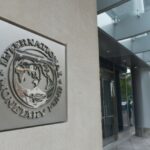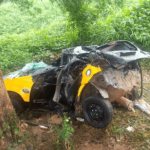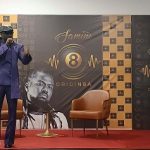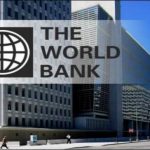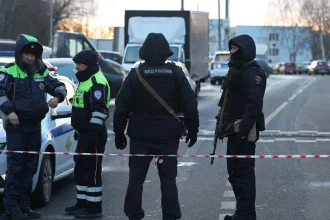Hong Kong’s Apple Daily newspaper has vowed to “fight on” after the arrest of owner Jimmy Lai under a controversial security law imposed by Beijing.
In extraordinary scenes streamed by the paper on Monday a handcuffed Mr. Lai was led through his newsroom as nearly 200 police officers raided the building.
The pro-democracy activist was among 10 people arrested on charges including colluding with foreign forces.
The move sparked global condemnation of the escalating crackdown on dissent.
US Secretary of State Mike Pompeo said China had “eviscerated Hong Kong’s freedoms”.
On Tuesday, Apple Daily’s front page showed an image of Mr. Lai in handcuffs with the headline: “Apple Daily must fight on.”
In some parts of the city Hong Kongers were seen queuing for a copy as early as 02:30 as vendors reported selling out of the popular tabloid founded by Mr. Lai.
The paper, which offers a rare and unvarnished take on Hong Kong and China’s leadership, said more than 500,000 copies were printed, up from the usual 100,000.
Mr Lai, who is viewed as a hero by many in Hong Kong for his direct criticism of Beijing’s top leadership, is the highest-profile detainee under use of the new legislation so far.
But on the mainland, he has long been labelled a traitor.
Hours after his arrest prominent youth activist Agnes Chow and Wilson Li, a freelance journalist, were also arrested under the same law.
Global outcry
The arrests renewed criticism from Washington, London and the United Nations about heightened attacks on the city’s freedoms.
“I’m deeply troubled by reports of the arrest of @JimmyLaiApple under Hong Kong’s draconian National Security Law,” tweeted US Secretary of State Mike Pompeo.
“Further proof that the CCP has eviscerated Hong Kong’s freedoms and eroded the rights of its people,” he wrote.
Similar sentiments were expressed in Britain, which has already said it will suspend its extradition treaty with Hong Kong and offer a pathway to citizenship for many of the city’s residents, in the light of the new law.
“This is further evidence that the national security law is being used as a pretext to silence opposition,” a spokesman for Prime Minister Boris Johnson told Reuters. “The Hong Kong authorities must uphold the rights and freedoms of its people.”
The controversial security law introduced to Hong Kong in June had already prompted some of the city’s highest-profile activists to flee overseas in anticipation of a broader clampdown on the city’s freedoms.
Speaking from London, pro-democracy activist Nathan Law told the BBC the arrests were “definitely a retaliation towards the sanctioning from the US on Hong Kong officials”.
The US had earlier sanctioned 11 Chinese officials and allies in Hong Kong – including Hong Kong’s Chief Executive Carrie Lam – for curtailing political freedoms.
Days later Beijing responded with sanctions against 11 US citizens.
Mr Law also described it as the latest step “to quash the freedom of Hong Kong”, silence Hong Kongers and create a larger “politics of fear”.
Warning to press club
In another sign of the growing curbs on Hong Kong’s media, Chinese officials issued a stark warning to the city’s Foreign Correspondents’ Club over its statement condemning Monday’s raids and arrests.
The Office of the Commissioners of the Chinese foreign ministry in Hong Kong told the FCC to “stop defaming the implementation” of the new law “under the pretext of the freedom of the press”, state media Xinhua reported.
“The FCC hastily jumped out to exonerate Lai, which is to help and collaborate with anti-China forces to mess up Hong Kong”, it said, citing a spokesman for the office.
The UN also expressed renewed concern.
The office of the High Commissioner for Human Rights Michelle Bachelet called on the authorities to monitor the operation of the law and “amend it if necessary to ensure there is no scope for its misuse to restrict human rights guaranteed by international law and the Basic Law of Hong Kong”.
Human Rights Watch said the attack on Apple Daily may also be an attempt to limit the paper’s circulation.
“Under Xi Jinping, the Communist Party has long shown itself afraid of public opinion on the mainland, and is using the new national security law to try to smash Hong Kong’s independent voices and settle scores with longtime critics,” said HRW Asia director Brad Adams.
Pro-democracy protest flared in Hong Kong last year over plans to allow extradition from the territory to mainland China. While this proposal was eventually withdrawn, the demonstrations carried on, to reflect widespread demands for democratic reforms.





